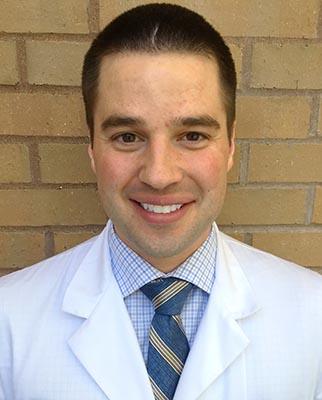
Nicholas Karlow, a medical student at Washington University School of Medicine and 2017 graduate of the Master of Population Health Sciences (MPHS) program, felt becoming a physician was a natural decision for him. Ultimately, he enjoys interacting with people and helping them feel better in addition to understanding the science behind medical conditions – the perfect combination for a future physician. He hopes to specialize as an emergency medicine physician in addition to continuing research in that field.
To stay up-to-date with clinical practices and academic research, Nicholas explored the MPHS program as a way to transition to being an academic physician. In his coursework, he began analyzing others’ research in emergency medicine and grew to critiquing his own research projects and ideas. In the future, he knows the information learned in the MPHS program will guide him to be a successful researcher to offer his patients the best clinical recommendations.
“Before the MPHS program, I had only a vague appreciation of how the body of clinical research progresses and what qualifies as a sound study or an important result,” Nicholas said. “Throughout my MPHS year, my perspective changed considerably for the better. Now, when I encounter a new clinical trial or study, I critically analyze the study methods and form my own opinion about the validity of the authors’ conclusions and the relevance of these conclusions to my future patients. Moreover, this appreciation for the intricacies of the clinical research process has ignited within me not just an appreciation for the work of others, but a strong desire to participate in the clinical research process myself, now and throughout my academic career.”
After earning his MPHS degree in May 2017, Nicholas feels confident that he is now fully prepared to be an active academic researcher throughout his career. With his well-rounded skillset, he has positioned himself as a leader for translating clinical research into clinical care, and set himself apart for residency applications. As Nicholas finishes medical school in the joint MD/MPHS program, he continues to encourage his classmates and colleagues to explore the MPHS degree program to help them become successful academic physicians, too.
The MPHS degree program accelerates clinical research expertise and gives physicians, residents, fellows and medical students the foundation to excel in leading, designing, conducting and moving research to applications in clinical settings. The curriculum emphasizes the role of clinical epidemiology and biostatistics in clinical effectiveness and outcomes research. Population health sciences training brings together passion for patient care and uses research to improve health outcomes for patient populations. The MPHS program gives you the opportunity to learn at a top-ranked medical institution, Washington University School of Medicine, known for patient care and population health excellence, in classes customized for clinicians and medical students.
To learn more about the MPHS program, contact Blanka Hodzic, program coordinator, at 314-362-5501 or bhodzic@wustl.edu.